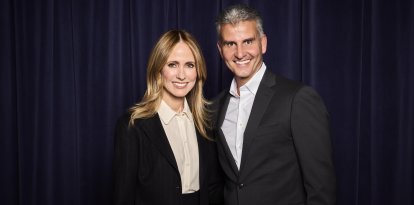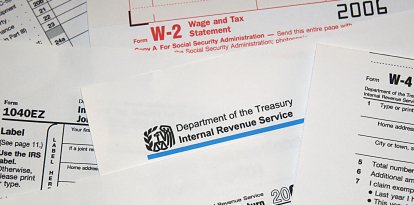Elizabeth Holmes sentenced to 11 years in prison in Theranos scandal
The entrepreneur defrauded thousands of people by claiming to have invented a device capable of testing blood with a single drop.

(Steve Jennings, TechCrunch/ Flickr)
Businesswoman Elizabeth Holmes was sentenced to eleven years and three months in prison and another three months of probation for the Theranos scandal. California Judge Edward Davila ruled against her seven years after the fraud perpetrated by the CEO of the Silicon Valley-based pharmaceutical company was uncovered.
The sentence also requires Holmes, 38, to face a fine of between $100 and $400 for each count of fraud. The penalty, however, could have been much higher: the government's defense attorneys were seeking 15 years in prison with probation and $250,000 in restitution. The defense team, on the other hand, asked for only 18 months in prison and probation with community service.
During her plea, Holmes expressed remorse and, through tears, apologized for her actions to Theranos employees, investors and former patients:
The rise of Theranos
The Theranos story begins in 2003. That year, a young Elizabeth Holmes founded a company that, at its peak, reached a valuation of $9 billion. She admired Steve Jobs and wanted to follow in his footsteps from an early age. As a result, the young woman managed to get into Stanford University. But, like the creator of Apple, her time at the university was short-lived. Her fear of needles gave her an idea: to create a device with the ability to test blood by withdrawing a single drop. In this way, a single prick (similar to that obtained by diabetics to measure sugar in the body) made it possible to obtain a complete blood analysis. One that, in addition, could be done by each patient at home.
She showed her invention to one of her Stanford professors, Channing Roberson, and he encouraged her to continue with the project. Following this, Holmes left Stanford and secured financial support from her parents to found Theranos. She was only 19 years old.
That same year, Elizabeth Holmes was named CEO of the company. She had achieved her dream: to be a role model for women in Silicon Valley and to be compared to Steve Jobs, whom she emulated by always wearing black. In addition, it managed to attract the attention of big businessmen such as Rupert Murdoch, Henry Kissinger and Betsy DeVos, who invested $125 million, $3 million and $100 million, respectively.
Problems begin
However, her invention did not work and, three years later, in 2006, she undertook the fraud for which she is now convicted. Pharmaceutical companies, tired of Holmes' promises, requested a demonstration of the device to see if it was really effective. The CEO, desperate to get the funding she needed, decided to fake a test to make Edison, as the device was named, work during a meeting with Novartis.
From that moment on, Theranos became synonymous with secrecy: everyone who joined the company had to sign a confidentiality document and not a single employee was allowed to talk about his or her work, not even with other colleagues in the company from other departments.
In 2009 the device was still not working and the blood tests, being unreliable, posed a risk to patients using the Edison. That same year, the company faced a major change: Holmes' boyfriend, Ramesh Sunny Balwani, joined Theranos as COO. A position in which he remained until the closing of the company in 2018.
Key year: 2016
2016 marked the beginning of the end for Theranos. Tyler Schultz, grandson of former Secretary of State George Schultz, told all about what was happening at Theranos. He had worked for three years in the company's lab and decided to blow the whistle on everything that was going on at the company to The Wall Street Journal.
The fallout from what Tyler Schultz uncovered was not long in coming and soon the federal agency of the Department of Health and Human Services (CMS) visited the facility. The conclusion they came to was blunt: Theranos should cease its activity immediately.
Two years later, the company closed its doors and legal problems began to mount for Elizabeth Holmes and Sunny who faced a total of eleven criminal charges, including fraud and conspiracy. The whole case was told in a series Hulu created that premiered in March of this year, The Dropout.
In 2022, Theranos was back on the front pages of the newspapers, and it wasn't just because of fiction. The jury in the San Jose courthouse released its deliberations in the Elizabeth Holmes case and found her guilty of wire fraud and conspiracy. She is to serve 11 years and three months in prison.
Balwani was also found guilty of the same charges. His sentence will be made public on December 7.
























